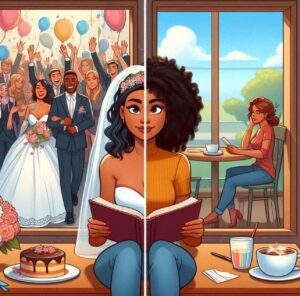Welcome Blessings!
(Tap 🔽 to see more topics!)

Your life isn’t set in stone. You have the power to change it. Brain reprogramming isn’t some sci-fi fantasy; it’s a fundamental concept rooted in how our brains work. It is like your brain is a well-worn record, playing the…

Are weather and personality traits linked? You might ask, and it’s a question that sparks a fascinating journey into ourselves. Imagine the crisp, clean scent of a post-thunderstorm breeze that makes you want to throw open the windows and breathe…

Being a healthcare general worker is way more than just a job. You’re the person who keeps everything ticking in a hospital or care home and makes sure patients are comfortable and things are running smoothly. If the doctors and…

I still remember the day I cast my vote for Rodrigo Duterte. It was election day in 2016, and I wasn’t feeling well. I had been busy with my work and studies, barely sleeping, pushing myself beyond exhaustion. I was…

We’ve been putting the COSORI Air Fryer through its paces lately because we are always searching for ways to make cooking easier and faster. And air fryers? They’ve become a staple in our kitchen. But with all the new models…

Marriage (prediction) time tick-tock… when is your wedding bell gonna ring a ding-ding? Is it a ‘tie the knot, pronto!’ kind of jingle, or more of a ‘hold that thought, I’m still figuring out my sock drawer’ melody? That significant,…

You are standing at a classroom doorway, ready to start teaching. It is your first time, and the energy is high. You take a deep breath and step inside. Ask yourself: What kind of space do you want this to…

Remember last week when we talked about handwriting analysis that might reveal little secrets about your personality? We’re back for round two! This time, we’re looking closer at what your writing supposedly says about you. Think of it like your…

Have you ever wondered what your handwriting says about you? Because I have! There is a side of me that believes that it is more than just a practical skill; it’s a personal expression. So, today, we will explore the…